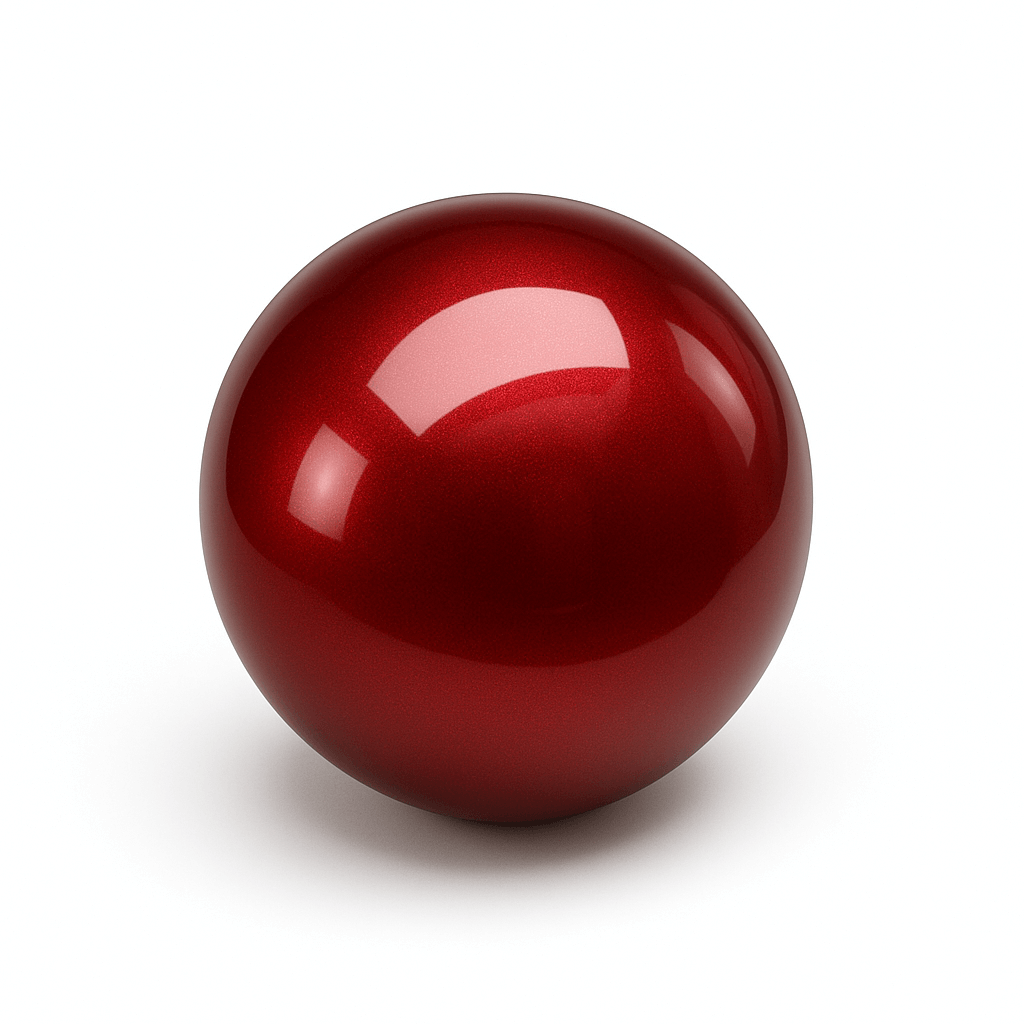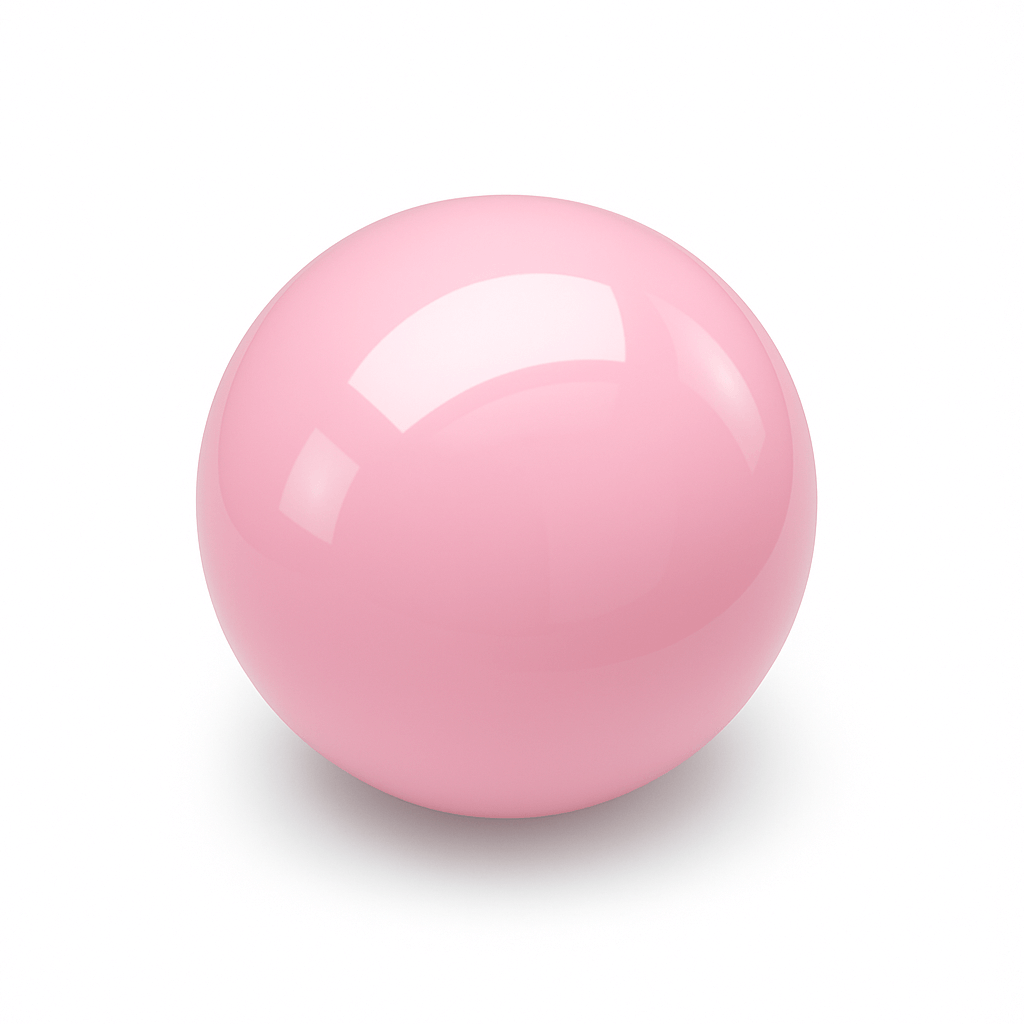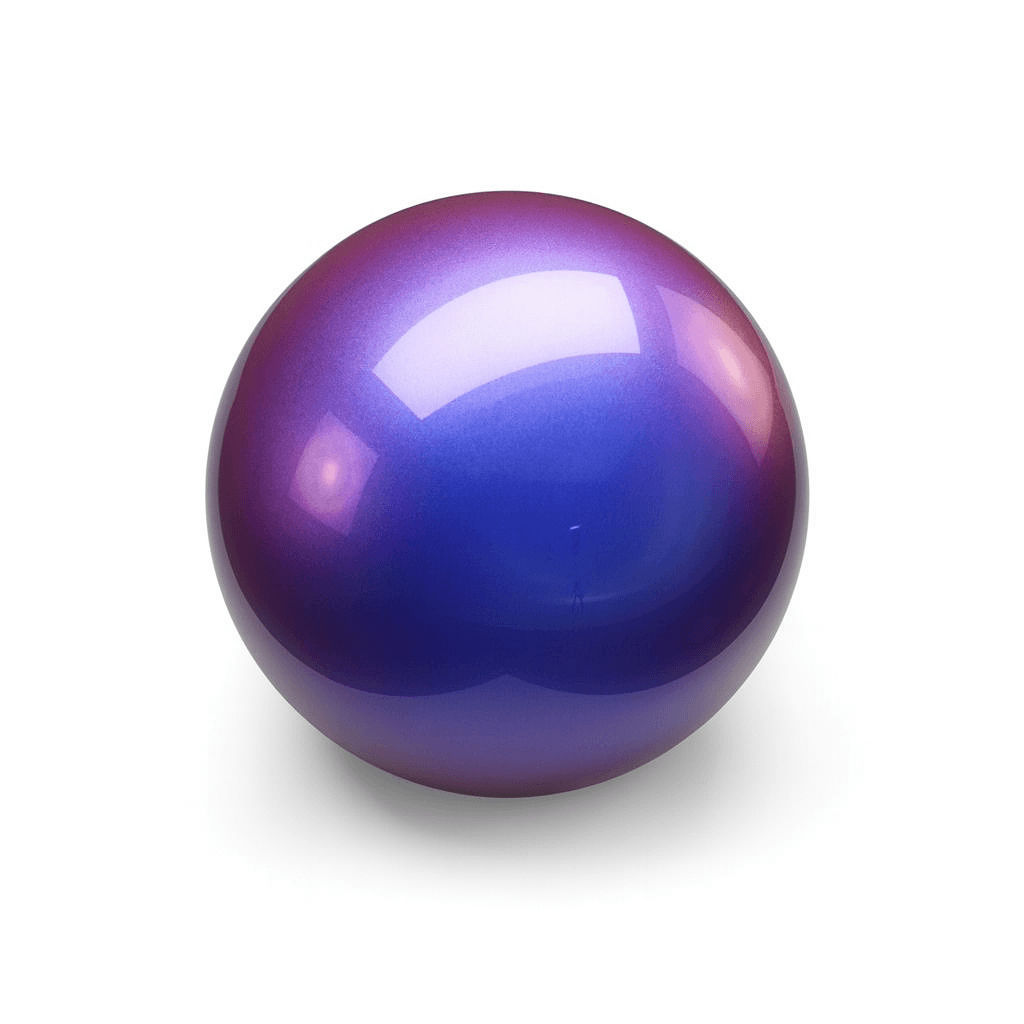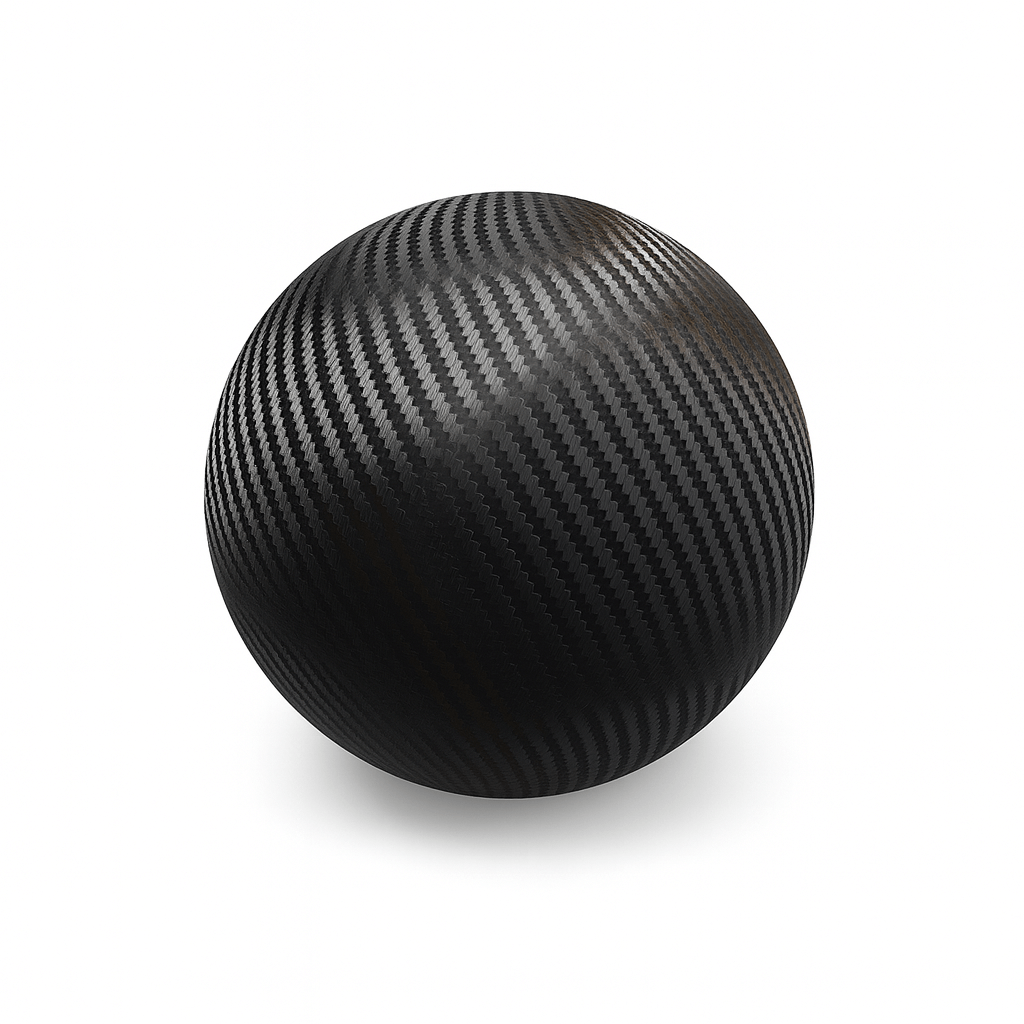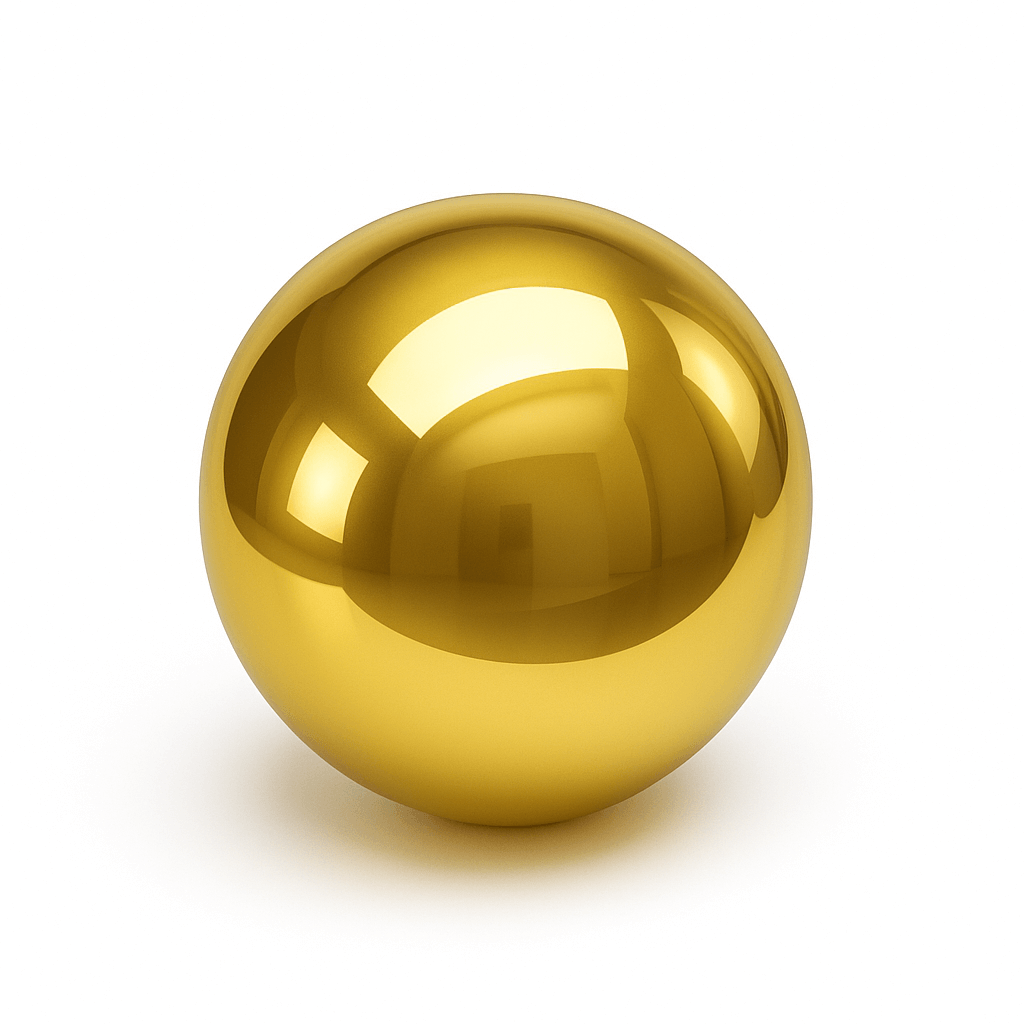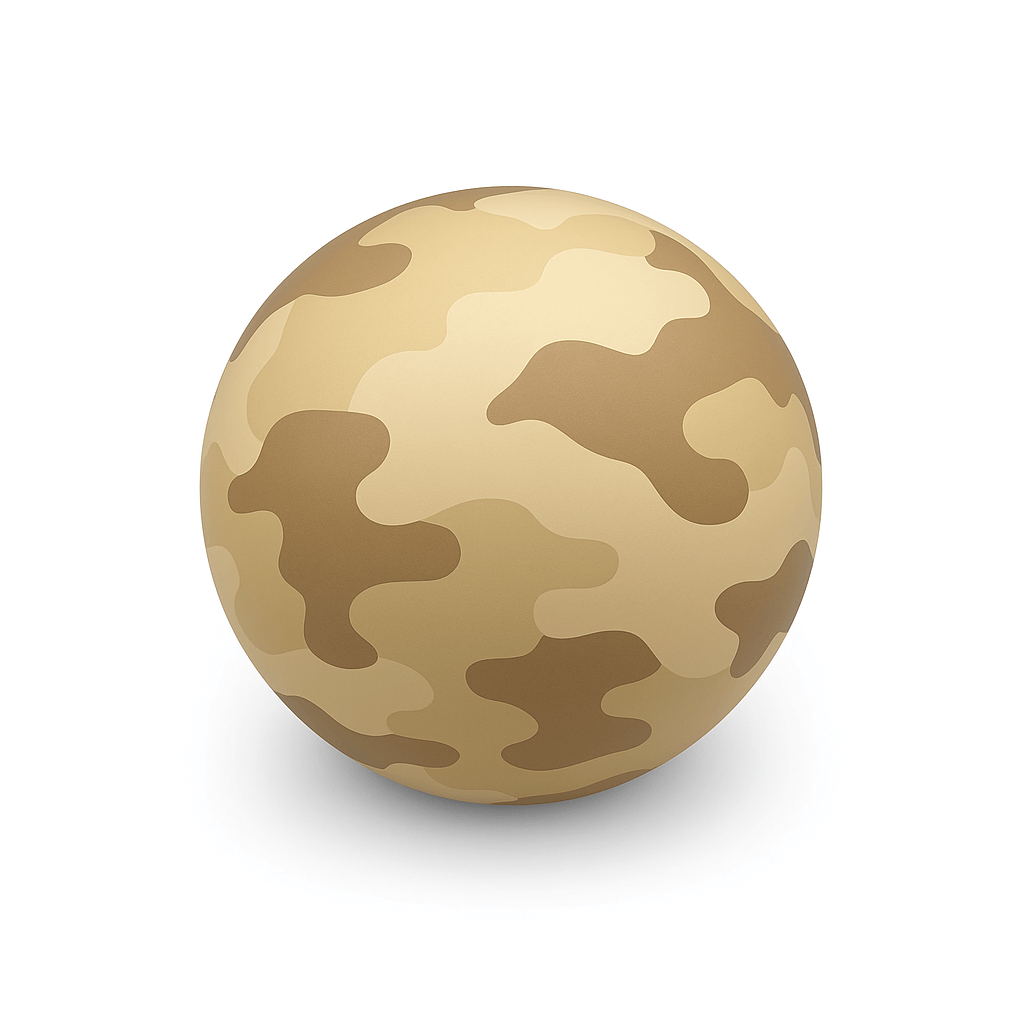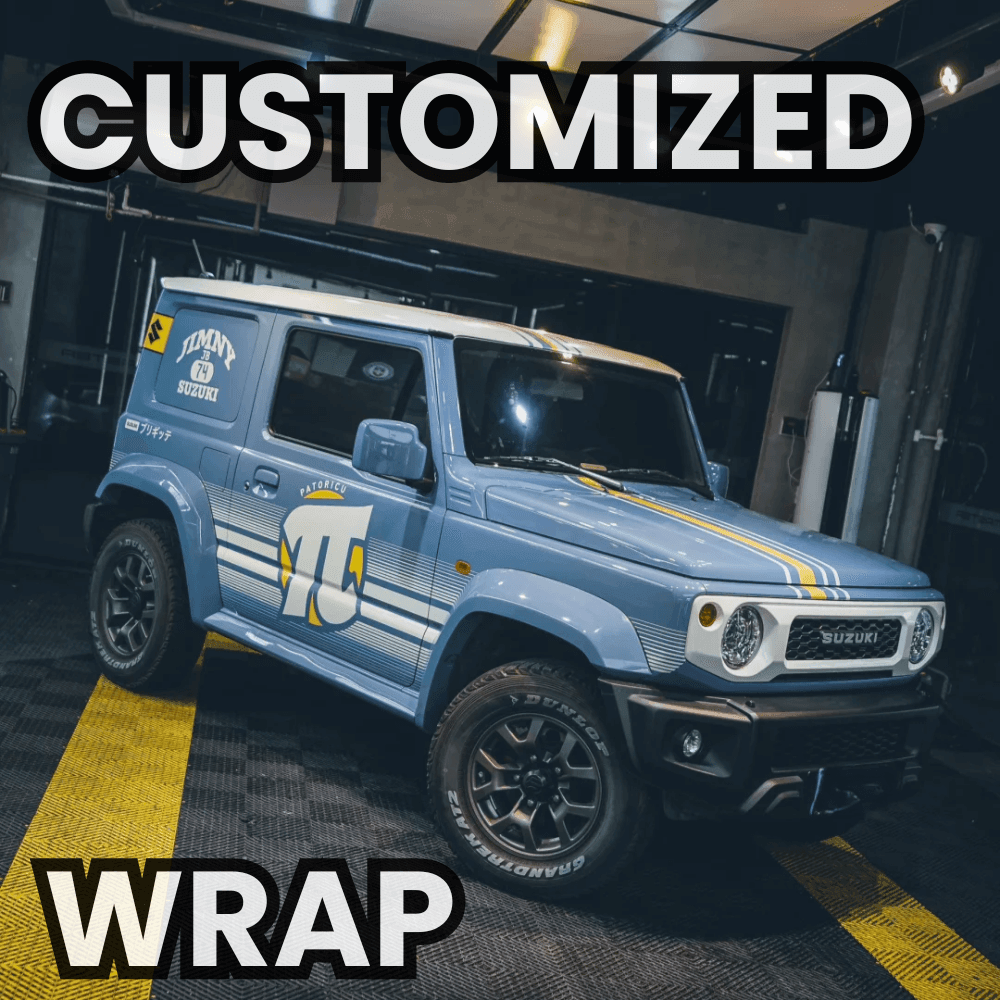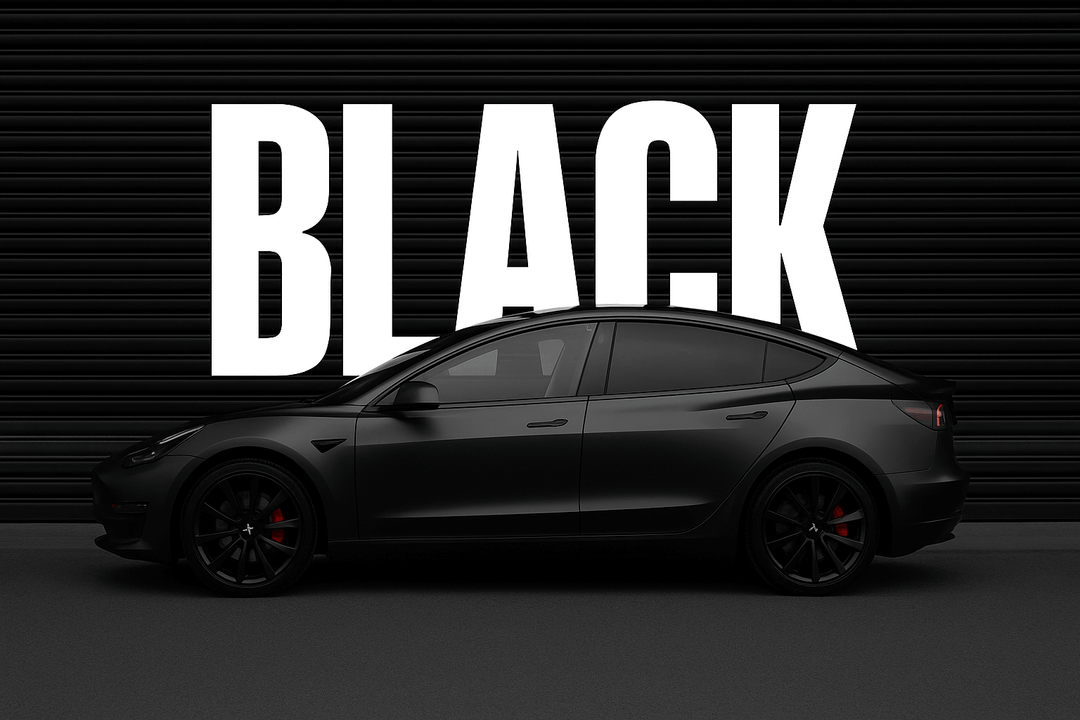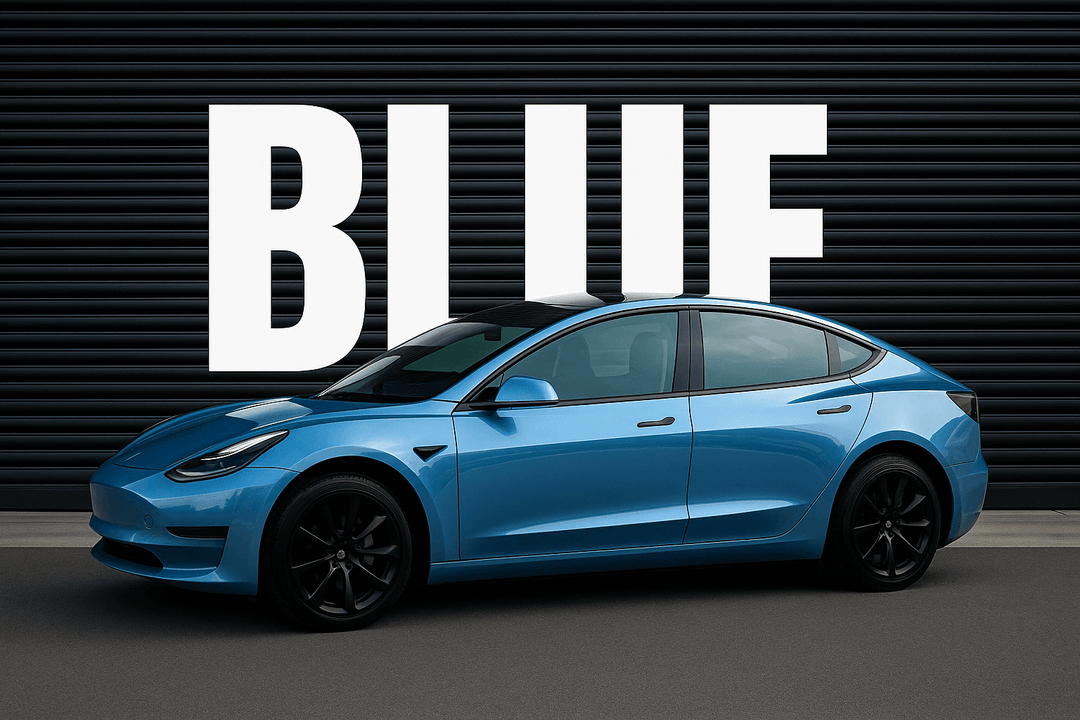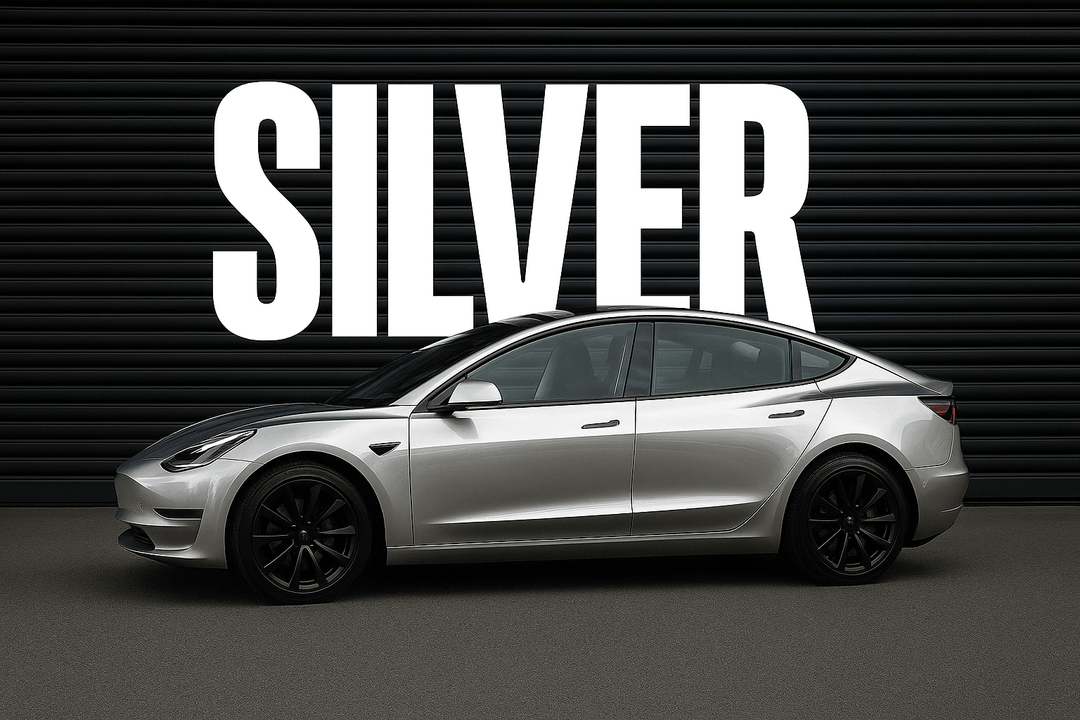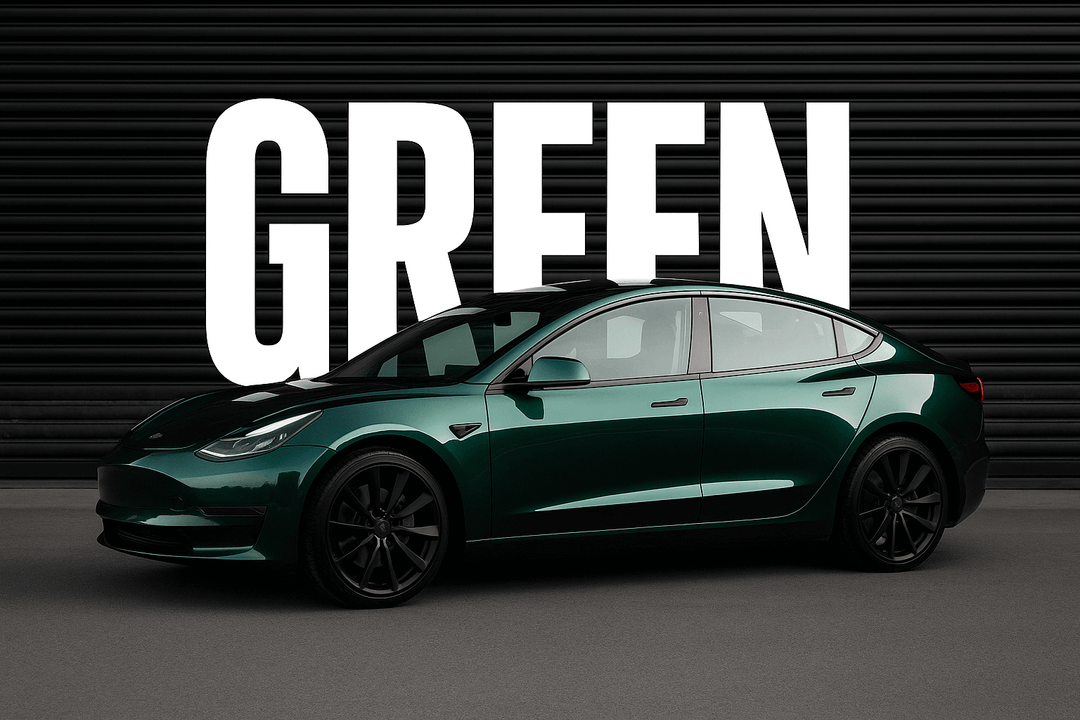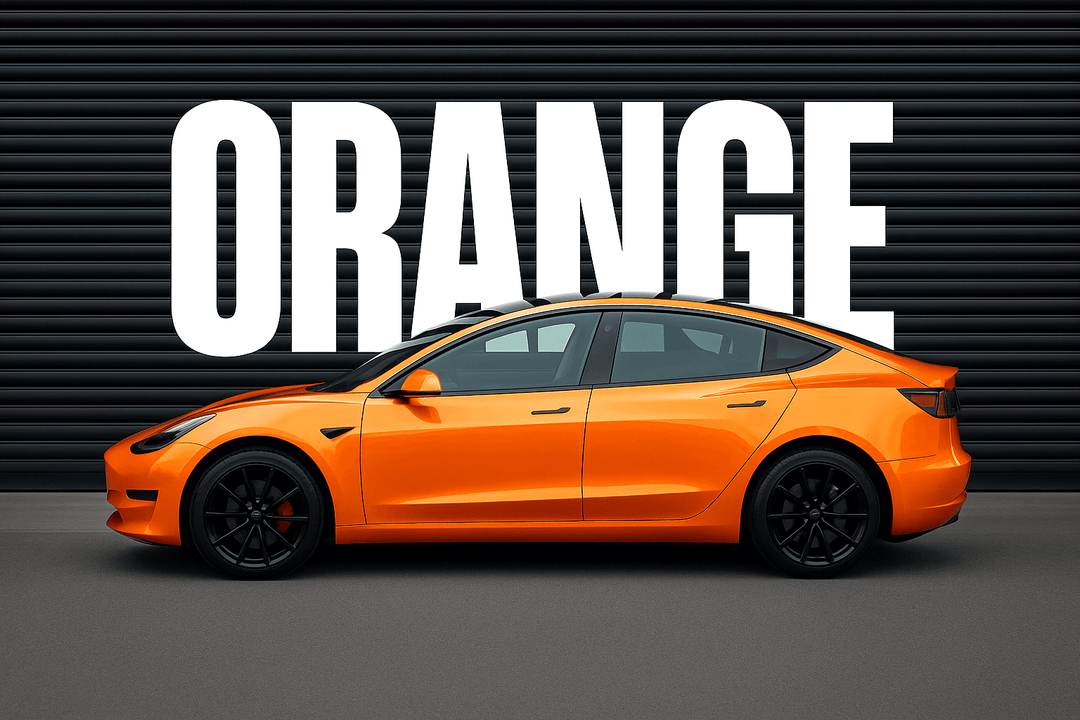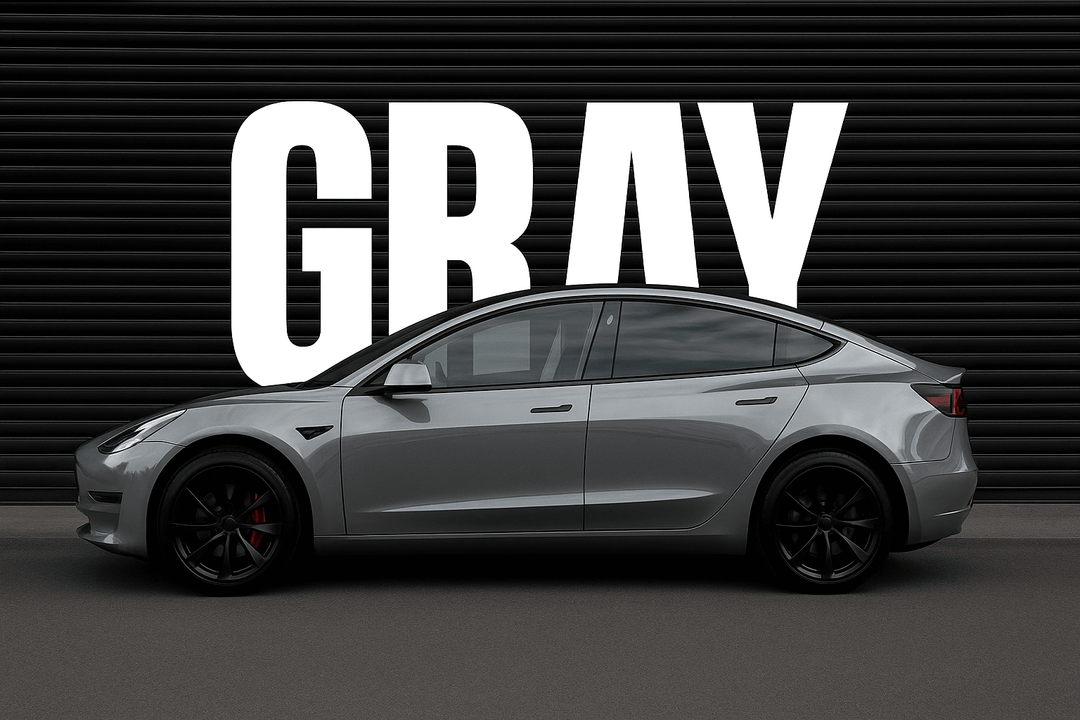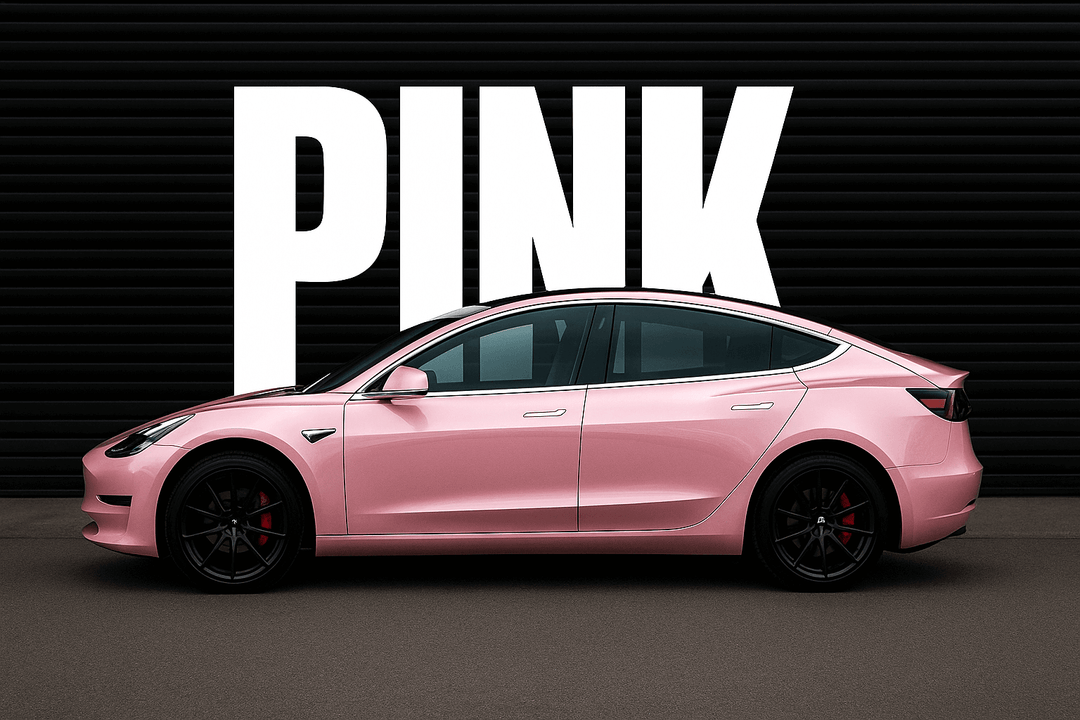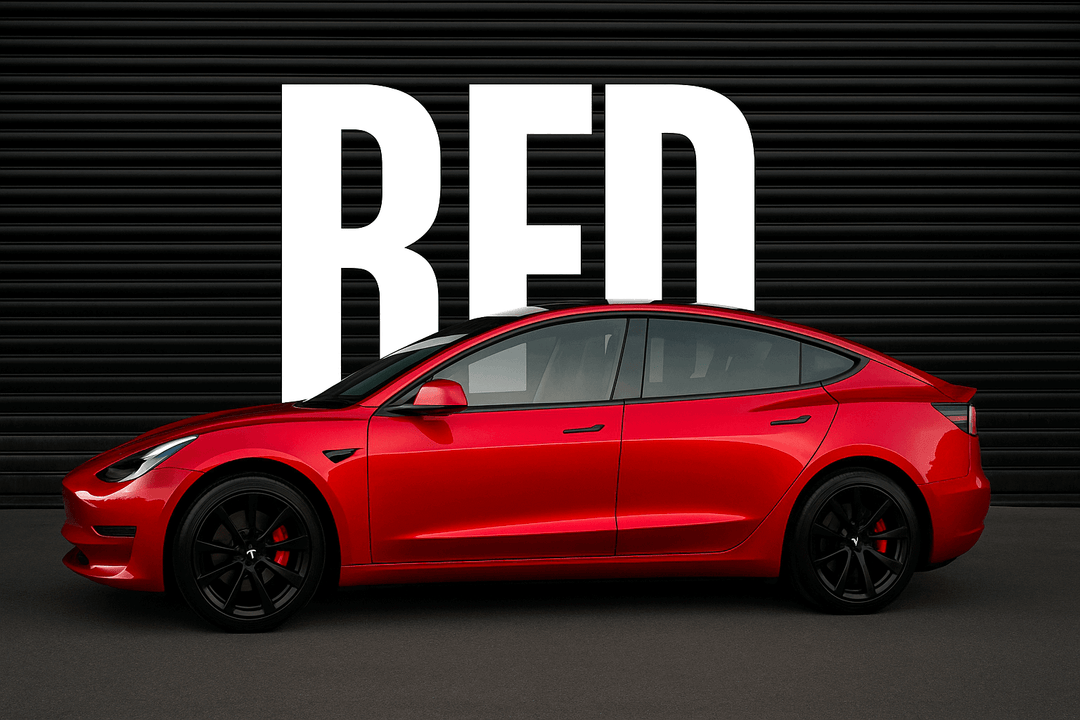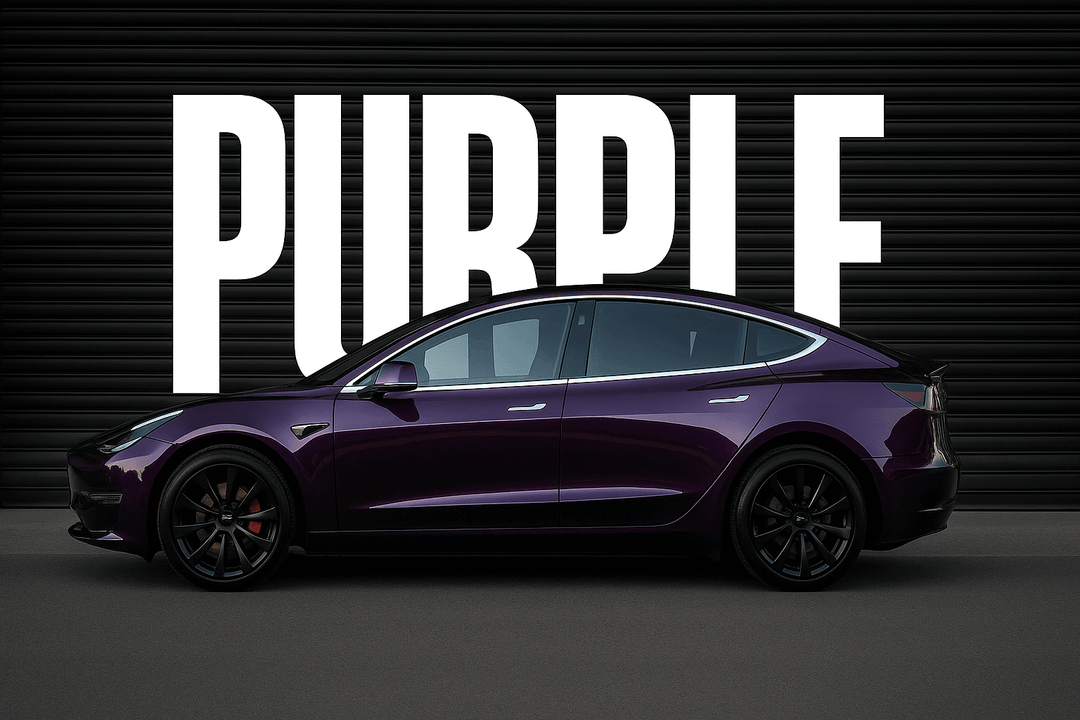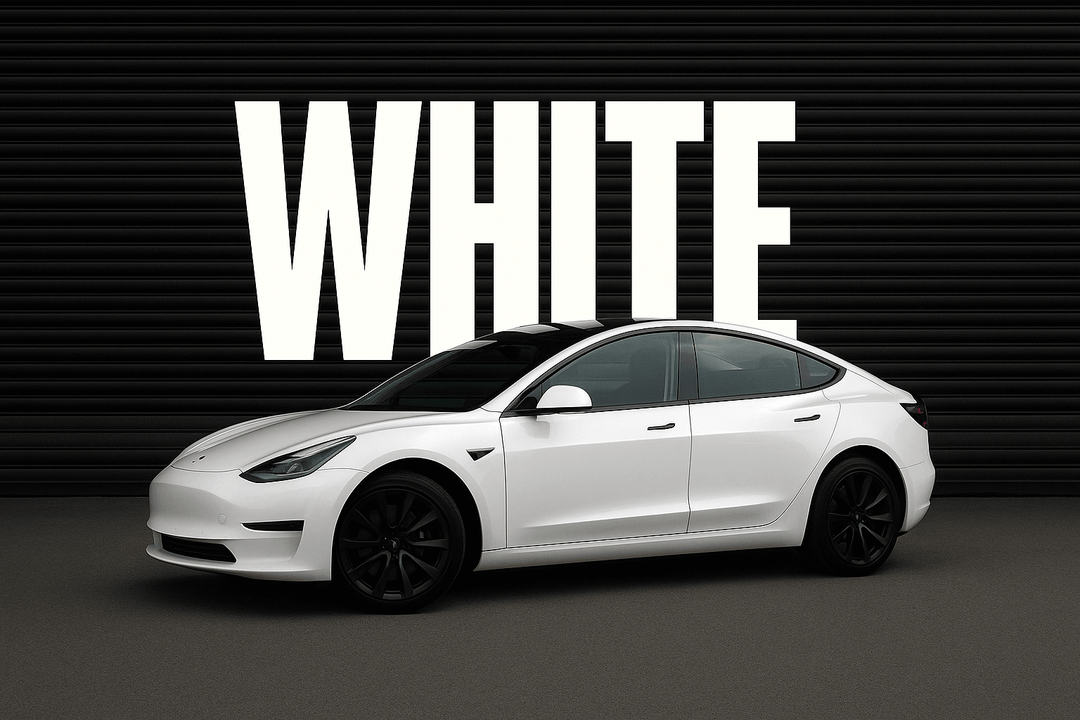Should I Wrap My Car
In today’s automotive world, vinyl car wraps have become one of the most popular choices for transforming a vehicle’s appearance. What began in the early 20th century as a method for advertising has grown into a highly sought-after form of personalization. From high-gloss metallic finishes to matte, satin, carbon fiber, and even custom-printed designs, vinyl wraps offer a wide range of visual possibilities that traditional paint simply cannot match.
The appeal goes beyond looks. Many vehicle owners turn to wraps not only to enhance style but also to protect the original paint, maintain resale value, and avoid the permanence of repainting. With proper care, a quality wrap can last several years and be easily removed or replaced when preferences change.
However, deciding whether to wrap your car involves more than choosing a color or finish. It requires an understanding of the advantages and disadvantages, the costs involved, and the condition of your current vehicle. While wraps can be a smart investment for many, they are not ideal for every situation.

In this article, we’ll take a closer look at the pros and cons of wrapping a car. Whether your goal is to make a bold statement, promote a business, or simply protect your vehicle’s paint, this guide will help you determine if wrapping is the right choice for you.
Why Would I Wrap My Car?
There are many reasons why car owners choose to wrap their vehicles, and most of them go beyond just visual appeal. A vinyl wrap allows for a complete transformation of your car’s exterior without altering the original paint. It’s a flexible solution for both personal expression and practical benefits.
If you have a specific color in mind that your manufacturer doesn’t offer, such as matte black, satin gray, or a striking metallic finish, a wrap gives you that freedom. From subtle hues to bold graphics, the creative possibilities are nearly endless. Whether you're going for a sleek professional look or something attention-grabbing, a wrap can bring your vision to life.
Leased vehicles are also a popular candidate for wrapping. Many people want to enjoy a fresh, personalized look during their lease term without violating the agreement or permanently changing the car. A wrap offers a reversible, non-invasive way to enhance appearance, and it can be removed before the vehicle is returned, leaving the factory paint untouched.
For business owners, wraps serve a distinctly different yet equally valuable purpose. A branded wrap turns your car, van, or truck into a moving billboard. Every trip becomes an opportunity to advertise your services, improve visibility, and reinforce your company’s image within the community.
The Pros of Wrapping Your Car
1. Vinyl Wraps Protect the Exterior
One of the most significant advantages of vinyl wrapping is the protection it offers for your car’s original paint. A high-quality wrap creates a physical barrier between the vehicle’s surface and the many hazards it faces on the road.
From gravel kicked up by tires to unexpected scratches in parking lots, your car’s exterior is constantly at risk. A vinyl wrap helps prevent chips, minor abrasions, and superficial damage that can lower the vehicle’s resale value over time. By absorbing the wear and tear that would otherwise impact the paint, the wrap helps preserve the car’s factory finish.
UV rays can fade paint over time, but a vinyl wrap significantly reduces sun exposure and its damaging effects. The same applies to acidic substances like bird droppings, tree sap, and road salt. These contaminants are far less likely to cause long-term damage when a wrap is in place.
Even in harsh weather conditions, such as heavy rain, snow, or hail, the vinyl provides an extra layer of defense. Rather than affecting the paint directly, these elements impact the wrap first, making it much easier to maintain the vehicle’s appearance throughout the seasons.
2. Car Wraps Can Be Customizable
Unlike traditional paint, which can be costly and time-consuming to customize, wraps allow for almost limitless design possibilities. You can choose from gloss, matte, satin, chrome, carbon fiber, and even color-changing films. Beyond solid colors, wraps can also feature printed graphics, patterns, logos, or artwork—tailored entirely to your personal taste or branding goals.
This level of customization is particularly appealing to car enthusiasts who want a truly one-of-a-kind look. It’s also a practical solution for businesses, allowing vehicles to serve as mobile billboards with eye-catching visuals and consistent brand messaging.
3. Vinyl Wraps Are Cost-Effective
Compared to a professional paint job, vinyl wraps are significantly more affordable, especially when you want a custom finish or design. A high-quality paint job, particularly one involving unique colors, effects, or multi-stage finishes, can be expensive and time-intensive. It also results in a permanent change to your vehicle, which can impact resale value if buyers prefer the original factory color.
In contrast, a vinyl wrap provides a fresh new look while preserving the original paint underneath. This means your vehicle can retain its value and still look personalized. Wraps can be installed relatively quickly, and when properly maintained, they maintain their finish without the same level of upkeep required for paint. For those with the tools and experience, installing a wrap on your own can reduce costs even further.
4. Vinyl Wraps Are Removable
Unlike paint, which permanently alters your vehicle’s appearance, a wrap can be removed at any time without harming the original finish—provided the paint was in good condition before application and the vinyl used is of high quality.
If you get tired of the current color or design, you can simply remove the wrap and replace it with something new. The process is straightforward and, in many cases, can be done at home with the right tools and patience. However, for larger vehicles or more complex wraps, professional removal ensures clean results and avoids unnecessary damage.
For businesses, this feature is particularly practical. When branding, promotions, or contact information change, the wrap can be updated without needing a full repaint.
5. Vinyl Wrapping Takes Less Time
Time is often a deciding factor when considering whether to wrap or repaint a car. Traditional paint jobs require extensive preparation, including sanding, priming, multiple layers of paint, and lengthy drying periods. Depending on the complexity and quality of the work, this process can take several days to a few weeks, leaving you without access to your vehicle for an extended period.
In contrast, vinyl wrapping is significantly quicker. Most standard wrap installations can be completed within one to two days, depending on the size and design complexity. There is no need to wait for paint to cure or for multiple coats to set properly. Once the wrap is applied, the car is ready to drive almost immediately.
6. Wide Range of Vinyl to Choose From
Vinyl wrapping offers a vast selection of colors, textures, and finishes, unlike paint, which often comes with limited factory options and higher costs for custom shades.
Whether you want a sleek gloss finish, a stealthy matte surface, or a head-turning metallic shimmer, there’s a wrap to match your vision. Within each finish category, there are multiple variants and color tones to choose from. For instance, gloss wraps may come in high gloss, super gloss, or even color-shifting chameleon versions. Metallic wraps can include pearlescent, brushed, glitter, and matte effects, while chrome options range from mirror-like surfaces to holographic and satin chrome styles.
In addition to finishes, wraps also come in specialized textures that can dramatically change the feel and personality of your vehicle. These include carbon fiber, camouflage, brushed metal, velvet, wood grain, and more.
7. Vinyl Wraps Are Easy to Maintain
Keeping a car clean and well-maintained often requires regular effort, especially when dealing with painted surfaces that need waxing, polishing, or specialized products to retain their shine. Vinyl wraps simplify this process considerably, offering a low-maintenance alternative that still keeps your vehicle looking fresh and polished.
Wrapped vehicles are easy to clean at home using just a few basic tools. A simple two-bucket method—one with a mild soap solution and the other with clean water—is often all you need. A soft microfiber cloth or sponge helps lift away dirt and debris without scratching the vinyl. After washing, a quick hand dry is typically enough to restore the wrap's original luster.
Unlike paint, vinyl wraps do not require waxing or polishing to maintain their finish. Many wraps come with built-in gloss, matte, or satin effects that stay consistent over time, as long as the surface is properly cared for. This eliminates the need for expensive detailing services or protective coatings, helping you save both time and money.
The Cons of Wrapping Your Car
1. You Get What You Pay For
While vinyl wraps are widely considered a cost-effective alternative to custom paint, not all wraps are created equal. One of the biggest mistakes car owners make is trying to cut costs by choosing lower-quality vinyl or attempting a DIY installation without proper tools or experience. Unfortunately, this often leads to disappointing results.
Cheap vinyl may look acceptable at first, but it tends to degrade quickly. Poor-quality materials are more prone to fading, cracking, or peeling, especially when exposed to sun, moisture, or temperature changes. They may also lack the smooth finish and color accuracy found in premium films, making the wrap appear dull or uneven.
While vehicle wrapping may seem straightforward, achieving a professional-level result requires training, precision, and the right equipment. When installed improperly, low-budget wraps can develop bubbles, wrinkles, or lifting edges that not only ruin the look but also shorten the life of the wrap.
2. Vinyl Wrapping Is a Temporary Solution
While vinyl wraps offer flexibility and creative freedom, their temporary nature can also be viewed as a drawback—especially for those seeking a long-term or permanent transformation. Unlike paint, which can last for the lifetime of the vehicle with proper care, vinyl wraps typically have a lifespan of about three to five years. This can vary depending on the quality of the material, environmental exposure, and how well the wrap is maintained.
For some car owners, this limited lifespan may be a disadvantage. If you're looking for a permanent color change or exterior finish, a traditional paint job might be more suitable. Vinyl is not intended to last forever, and over time, even high-end films will begin to show signs of wear, such as fading, edge lifting, or surface cracking—especially when exposed to harsh weather or excessive sunlight.
However, for others, this temporary quality can actually be a benefit. It allows the freedom to refresh the vehicle’s look every few years without the commitment or cost of repainting. Still, it’s important to recognize that vinyl wrapping is not a one-time, permanent solution.
3. Does Not Hide Imperfections
One common misconception about vinyl wraps is that they can cover up flaws in a vehicle’s bodywork. In reality, vinyl does not conceal dents, deep scratches, or other surface imperfections. Instead, it conforms closely to the shape of the car, much like a second skin. This means that any damage underneath the surface remains visible, and in some cases, it may even become more noticeable once the wrap is applied.
For example, if a panel has a dent or uneven surface, the vinyl will lay over it and highlight the contour rather than mask it. Likewise, sharp edges from previous damage or chipped paint may prevent the wrap from adhering properly, leading to bubbles or lifting around those areas.
4. Drastic Colour Changes
While high-quality vinyl wraps are designed to provide full coverage, any damage to the surface can expose the original paint underneath. Scratches, chips, or scuffs in the wrap may reveal the factory color, which can be especially noticeable if there’s a strong contrast between the wrap and the paint. This not only affects the visual consistency but also reduces the overall impact of the color transformation.
In addition, the original paint may become visible in areas that are hard to wrap perfectly, such as door jambs, edges of the hood, or the inside of trunk panels. These spots are often left unwrapped to ensure proper fit and durability, and they can create a visual mismatch if the wrap and base colors are significantly different.
How Much Do Car Wraps Cost?
The cost of wrapping a car can vary widely depending on several key factors, including the type of wrap, the size of the vehicle, the finish you choose, and the complexity of the installation process.
For a standard full-body wrap using gloss or matte vinyl on a compact car or sedan, prices typically range between $2,500 and $4,000. Larger vehicles, such as SUVs or trucks, require more material and labor, so the cost can increase to around $5,000 or more.
Specialty finishes like chrome, satin chrome, or metallic wraps are usually more expensive. These materials are more delicate and difficult to work with, often requiring advanced techniques and careful handling. A chrome wrap, for example, can cost anywhere from $6,000 to $8,000, depending on the vehicle’s shape and surface contours. Additionally, chrome films may be more prone to imperfections if overstretched or exposed to excessive heat, which adds to the installation challenge.
If you're wrapping an ultra-luxury or exotic vehicle, the price can climb significantly. A car such as a Rolls-Royce or a Lamborghini may cost $10,000 to $12,000 or more to wrap. This is not only due to the larger or more complex body panels but also because professional installers must take extra care to avoid damaging high-value surfaces.
Partial wraps, such as hoods, roofs, or accents, are more affordable and can range from a few hundred to a couple of thousand dollars, depending on the scope of work and film type.
Is It Cheaper to Get a Car Wrapped or Painted?
When comparing the cost of wrapping versus painting a car, the answer depends largely on the level of quality you're looking for and the type of finish you want to achieve.
A basic paint job using standard colors is typically cheaper than a full vinyl wrap. These entry-level paint jobs can cost under $2,000, making them a more affordable option at first glance. However, if you're aiming for a high-quality, multi-coat finish with proper surface preparation, the price quickly rises—often matching or even exceeding the cost of a professional vinyl wrap. Expect to pay $4,000 to $6,000 or more for premium paint, especially if you want specialty effects like matte, satin, or color-shifting finishes. Achieving those same looks with vinyl is often less expensive and faster.
Another key difference is reversibility. A wrap is semi-permanent and can be removed without damaging the original paint, giving you the flexibility to update the car's appearance or return it to its factory finish later. Paint, on the other hand, is a permanent change, and repainting a car can affect its resale value, especially if the new color deviates from the original.
For hands-on car owners, a DIY vinyl wrap is an option that can dramatically cut costs. A full roll of vinyl large enough for a sedan or coupe typically costs $500 to $600 from Yeswrap, and with the right tools and enough time, it’s possible to complete the job yourself. However, wrapping requires precision, patience, and experience. For most people, a professional installer is the safer route to ensure a clean, bubble-free finish.
How Long Does a Car Wrap Last?
The lifespan of a car wrap depends on several factors, including the quality of the vinyl, how well it is maintained, and the conditions the vehicle is exposed to on a daily basis. On average, a professionally installed car wrap can last three to five years, and in some cases even longer with proper care.
Constant UV radiation, especially in hot climates, can cause the vinyl to fade, dry out, or become brittle over time. For example, a car that is parked outdoors all day under direct sunlight may see its wrap degrade much faster—sometimes in just a year or two. On the other hand, vehicles that are regularly parked in a garage, shaded area, or covered tend to maintain their wraps much longer.
Regular hand washing with mild soap and water helps prevent dirt, grime, and environmental contaminants from breaking down the vinyl surface. Promptly removing things like bird droppings, tree sap, or insect residue will also help preserve the finish and prevent staining or etching.
For those looking to extend the life of their wrap even further, applying a ceramic coating is an excellent option. This transparent, liquid coating creates a protective layer over the vinyl, enhancing UV resistance, repelling water, and guarding against minor scratches. While ceramic coating involves an additional cost, it can significantly improve both the durability and appearance of the wrap over time.
Wraps Aren’t for Everyone
While vinyl wraps offer a wide range of benefits, from aesthetic customization to paint protection, they may not be the right fit for every vehicle owner. A car wrap requires more than just a one-time application. It also demands ongoing care and attention, especially if you want it to look its best over the long term.
Your location and driving habits play an important role. In colder climates where roads are treated with salt during winter, the wrap may be more susceptible to damage from chemicals and moisture. In hot and sunny regions, prolonged exposure to intense sunlight can lead to fading, discoloration, or premature wear, particularly if the car is parked outdoors for extended periods without cover.
For those who are not prepared to clean their vehicle regularly, store it in shaded areas, or remove contaminants like bird droppings and tree sap promptly, a wrap may not perform as well or last as long as expected. It's not a “set it and forget it” solution—it’s an investment that rewards those who are willing to maintain it.
That said, many car owners find the benefits far outweigh the drawbacks. With the right vinyl film, proper installation, and a basic maintenance routine, a wrap can dramatically enhance your car’s appearance and help preserve its value. And when the wrap reaches the end of its lifespan, you always have the option to remove or replace it with a new design.
If you’re ready to explore what a wrap can do for your vehicle, make sure to research thoroughly and choose a product that suits both your style and your environment. At Yeswrap, we offer a wide selection of premium vinyl films in every color and finish you can imagine. Visit our website, find the perfect wrap, and give your car the transformation it deserves.
Frequently Asked Questions
Q. Do car wraps scratch easily?
Car wraps are designed to be durable, but like any surface, they can scratch if exposed to sharp or abrasive objects. Minor surface scratches may not be noticeable, especially on textured or matte finishes, but deep scratches can penetrate the vinyl. Using gentle cleaning tools and avoiding contact with sharp materials will help preserve the wrap's appearance over time.
Q. Do car wraps cause rust?
No, vinyl wraps do not cause rust. In fact, a properly applied wrap can act as a barrier, protecting the paint and metal underneath from moisture and road debris. However, if the car has existing rust or damaged paint, applying a wrap over it can trap moisture and potentially worsen the problem. It’s important to repair any corrosion before wrapping the vehicle.
Q. Do car wraps fade in the sun?
Over time, prolonged exposure to direct sunlight can cause some fading, especially with lower-quality vinyl. UV rays can degrade pigments and reduce the vibrancy of the wrap’s color. To prevent this, choose a high-quality, UV-resistant wrap and try to park in shaded areas or use a car cover when possible. Applying a ceramic coating can also help improve UV protection.
Q. Why is my car wrap peeling?
Peeling is often a sign of improper installation, poor surface preparation, or low-quality vinyl. It can also occur if the edges of the wrap are exposed to excessive moisture, heat, or pressure. To prevent peeling, ensure the wrap is installed by a professional and follow proper care instructions, including gentle handwashing and avoiding high-pressure washes near the edges.
Q. Can I leave my wrapped car outside?
Yes, you can leave a wrapped car outside, but extended exposure to sunlight, rain, snow, or pollutants may shorten the lifespan of the wrap. To maximize durability, park in a garage or shaded area when possible, and consider using a breathable car cover. Regular cleaning and maintenance will also help the wrap stay in top condition even when parked outdoors.
Related Articles:
How to Choose the Right Vinyl Wrap Finish for Your Car



